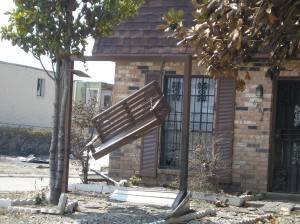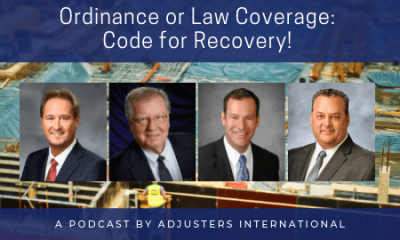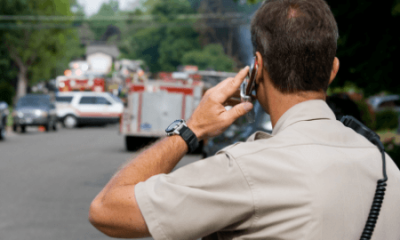Common Mistakes Made By Policyholders Following a Property Loss
 Not filing quick enough
Not filing quick enough
Rules and restrictions apply when filing a property insurance claim. Do not wait too long to file as some policies have a strict timeline, as our Disaster Checklist explains. It is your responsibility to contact the insurance company in a timely manner to report the loss. You will want to take action to confirm that the type of loss is covered by your insurance and to put the claim on record; the sooner you report the damage, the better.
However, you do not want to rush the actual process of the claim once the claim is opened. Being too eager to move the claims process along can be unfavorable for the policyholder, causing you to miss important details in an effort to settle as fast as possible versus settling as smart as possible.
Licensed public adjuster Greg Raab gives the following advice, "Understanding your contractual obligations as the policyholder, such as reporting and documenting your claim in a timely manner and mitigating your damages are vital to the proper settlement of your claim."
Disorganized
Disorganization during an insurance claim can be costly. It is of utmost importance to be extremely thorough and organized. For example, not taking the time to accurately inventory your damaged possessions or keep a paper trail of every person you have spoken to can wreak havoc on your claim.
One of the most important phases of the insurance claim is to accurately identify and evaluate all personal property that had been damaged or lost during the disaster. This is a very tedious, detailed process that if not done thoroughly can be detrimental. Leaving items out of your claim is only going to hurt your settlement in the long run. Keep in mind that the small items, such as office supplies for a business or hygienic products for a homeowner, can add up to a significant monetary value when all things are considered.
As a policyholder, you need to dedicate time to document every phone call, meeting and interaction you have with the people involved in your claim, including: contractors, public adjusters, the insurance company's representatives, etc. After each meeting, send a follow-up e-mail noting bullet points of what was discussed and asking them to confirm that your understanding of the conversation was correct. If problems arise during the course of your claim, this documentation will serve as support for your position.
Being organized also involves checking references and credentials; which can an easy step to bypass and ignore, but is one that you will wish you did not forget if you find yourself scammed by parties posing as contractors, public adjusters/attorneys, FEMA workers, or charitable organizations. Taking the time to check that all parties are accredited can save difficulty in the long run. There are many websites and methods to find out someone's standing in their industry such as the Better Business Bureau, the National Association of State Contractors Licensing Agencies, NAPIA and more.
Not using your own experts
A disaster team, or a response team, is a group of individuals that will assist you in filing your claim that work for you, not your insurance company. This team could include your own public adjuster, contractor, engineer, and attorney. A lead spokesperson should be assigned and should be an individual who is knowledgeable in the insurance claims process.
Solely relying on the insurance company's resources puts you at a distinct disadvantage. Just as the insurance company has their team, you should have yours for your own protection as well to ensure that you get the settlement you are entitled to under the terms of your policy.
Not understanding your policy's language
The insurance claim process can be overwhelming for someone who is not familiar with the nuances and the language used in your insurance policy. If you have not worked in the insurance industry or with resolving claims, it will be difficult to fully understand your policy's coverages and exclusions. It is beneficial to enlist the services of a licensed public adjuster who has years of experience in navigating the fine print of insurance policies. They will advocate on your behalf, mediate between you and your insurance company, and ultimately get you a full and fair settlement.
The property claims process is a detail-oriented, time consuming but necessary venture following a property loss. Do not make the mistakes that others have in the past by being disorganized or by trying to do it all on your own. Being aware of these common mistakes can help lead you to a better, faster recovery.











